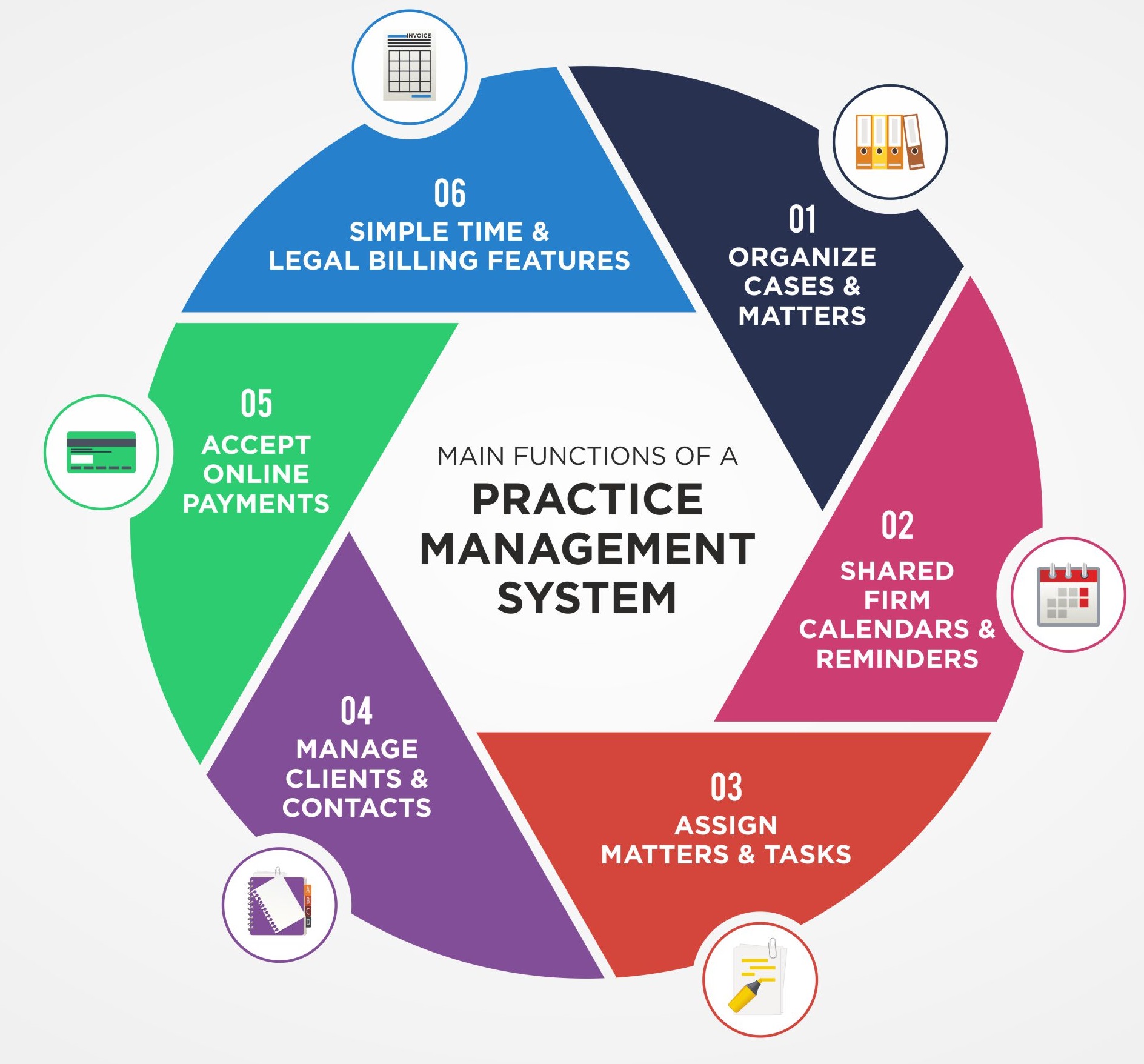Practice Management: Harnessing a Firm’s Knowledge
(2 minute read)
 A few months ago, I was speaking with a client whose managing partner knew they needed more than what they had in terms of programs that supported their work. After speaking with him for some time, I posed a question to him:
A few months ago, I was speaking with a client whose managing partner knew they needed more than what they had in terms of programs that supported their work. After speaking with him for some time, I posed a question to him:
“If someone – a client, judge, regulatory agency – came to you and asked for every piece of information you had on a case or matter, how many places would you have to look in order to do that?”
The managing partner began ticking off what they had. He stopped after counting to 7 although he said there might be more. That’s typical of a law firm, or just about any service-oriented organization. Commonly used programs support document management, billing, accounting, word processing, online research portals, individuals’ email inboxes… this list goes on. But when it comes down to pulling all of these sources together, what can handle that?
The answer is practice management programs (PMPs). These programs – on-premise and cloud-based – act as a central repository that either includes or links to
- CRM
- Contact Management
- Case/Matter Management
- Phone Call Management
- A repository to store notes about staff interactions that are contact/case/matter-related
- Links with online research
- Document Management
- Document Automation / Merge Templates
- Email Management
- Case/Matter Timelines
- Time/Fee tracking
- Expense tracking & recovery
- Billing
- Optional accounting or links to accounting programs such as QuickBooks
By centralizing these tasks, PMPs help law firms operate more efficiently and effectively.
“Okay, but you’re asking me to invest in one more program. What are the benefits?”
- Increased Efficiency: By automating routine tasks and centralizing information, PMPs free up valuable time for legal professionals to focus on higher-value activities such as client consultation and case strategy.
- Enhanced Collaboration: PMPs encourage collaboration among team members by providing a unified platform for sharing information, documents, and updates. This ensures everyone is on the same page, improving overall productivity and case outcomes.
- Improved Client Service: With streamlined processes and better organization, law firms can provide more responsive and personalized service to their clients. Automated updates and easy access to case/matter information enhance the client experience and build trust.
- Better Compliance and Risk Management: PMPs help law firms stay compliant with regulatory requirements by providing tools for managing client information, tracking case activities, and maintaining detailed records. This reduces the risk of errors and enhances accountability.
- Cost Savings: By reducing the time spent on administrative tasks and minimizing the risk of errors, a practice management program can lead to significant cost savings for law firms. And improved efficiency can translate into higher revenue potential.
Investing in a practice management program might seem like another cost, but the benefits far outweigh the initial investment and learning curve. As law firms navigate the complexities of modern legal practice, those leveraging PMPs will find themselves better equipped to meet the demands of today’s clients while positioning themselves for future success.
This is the first in a series of articles. In future posts, we’ll discuss some of the programs we support – their features, their benefits and why we like and support them. I’ve used a practice management program with our own office for almost 25 years and tell people it is the source and font of all wisdom and knowledge in our office! Want to know more? Call us at 202-466-3740 or Contact Us and leave a comment for us to reach out to you.

Dana Riel is President and Founder of Business Solutions, Inc., serving the Washington, D.C. metropolitan area since 1985. Her firm is the authorized training center for the region for Time Matters and PCLaw by PCLaw|Time Matters, PLLC; Timeslips and Sage 50 Accounting by Sage Software; and QuickBooks by Intuit Corporation. She also serves as a consultant for Caret Legal (formerly known as Zola Suite), CosmoLex, Soluno & TimeSolv. As a trainer, Dana has provided training services to organizations such as the DOD Defense Logistics Agency, Judge Advocate General’s Office (JAG)/Department of the Navy, University of the District of Columbia School of Law, U.S. Department of Commerce and the U.S. Department of Veterans Affairs, as well as with small‐ to mid‐size law firms in the Baltimore‐Washington D.C. area. In 2009, she participated in the series of day‐long seminars sponsored by the District of Columbia Bar Association Practice Management Section, titled “Basic Training: Learn About Running a Law Office”. Ms. Riel also served as an Adjunct Professor in Georgetown University’s Paralegal Studies Program, having taught the course, “Legal Ethics/Legal Technology” in 2009; and “Legal Technology” for the Spring and Summer Semesters of 2010.

